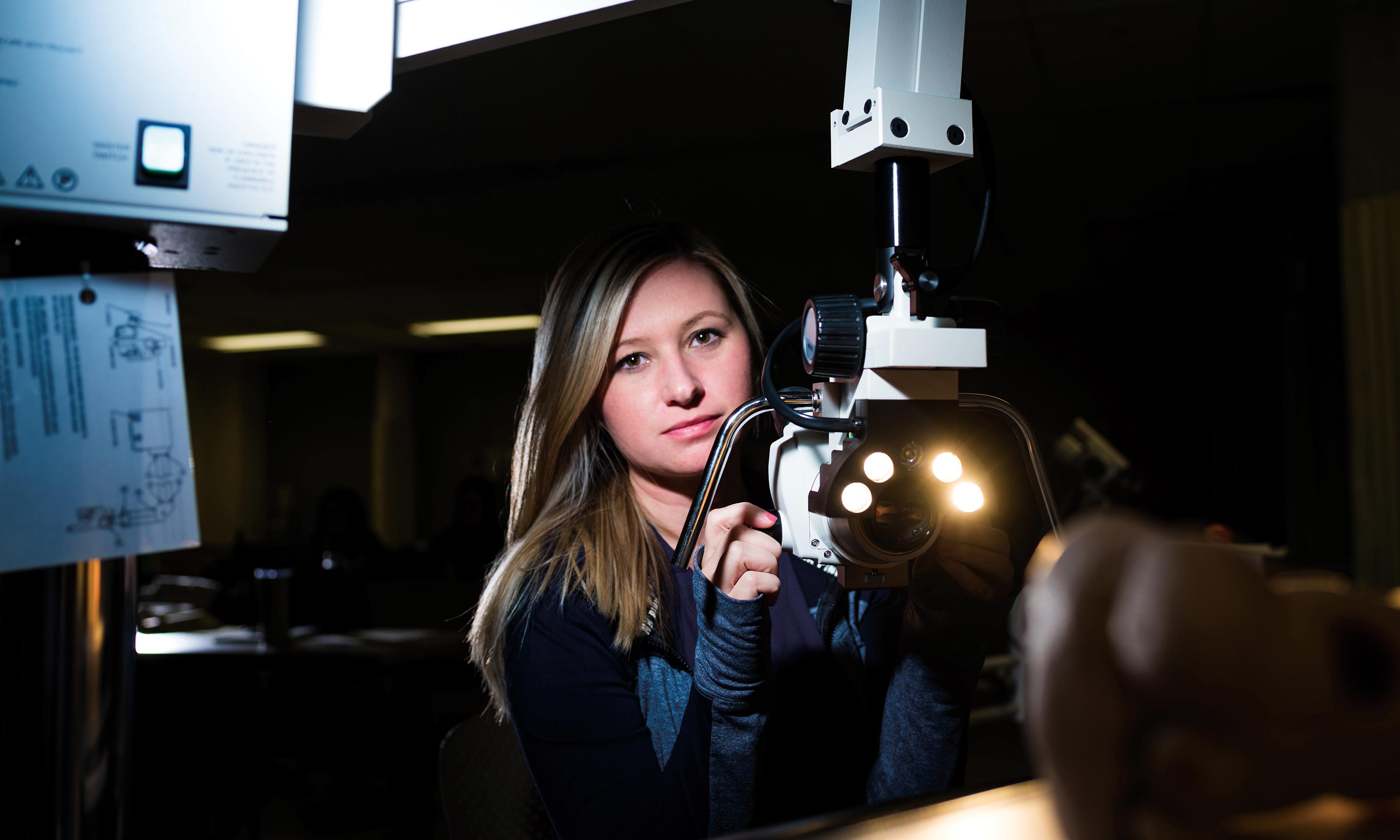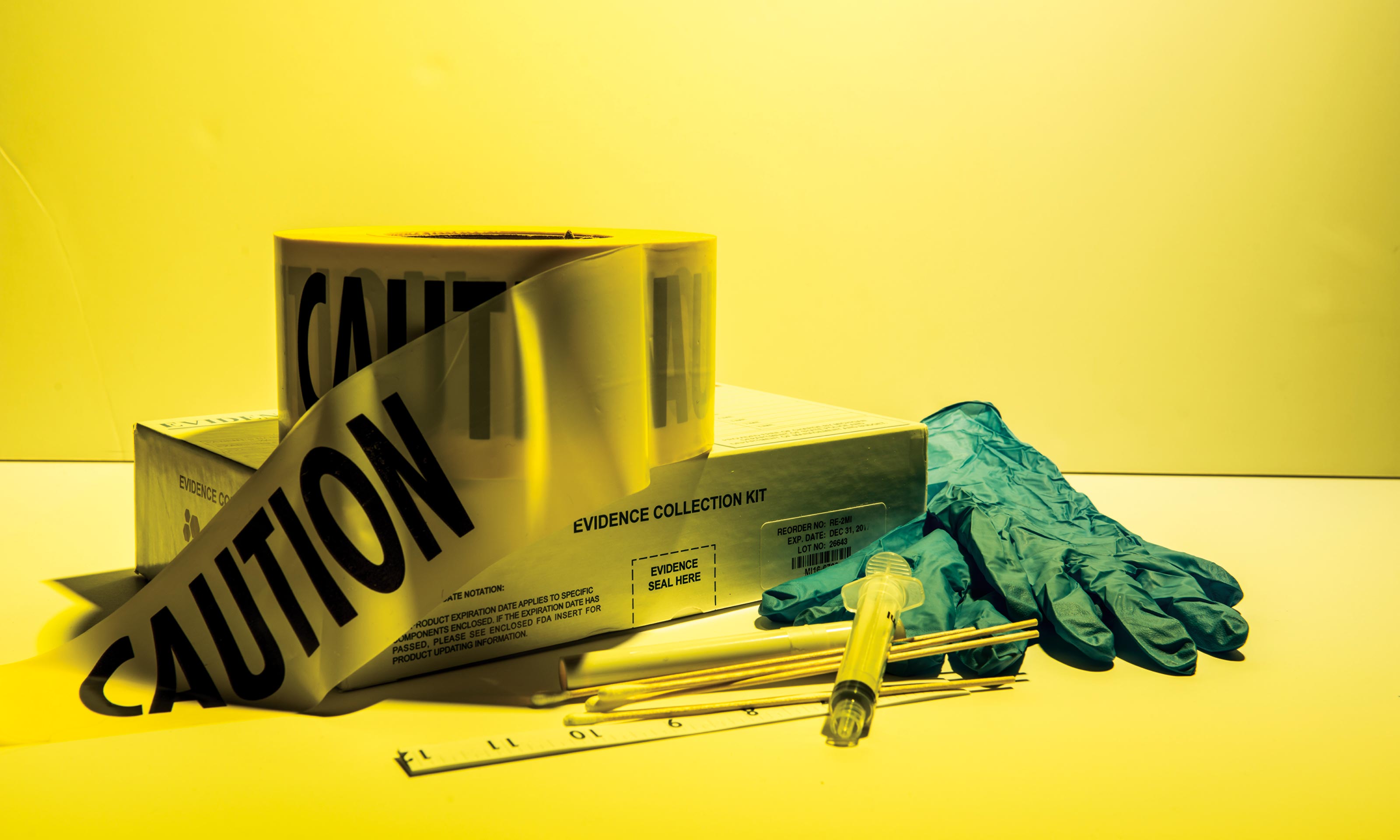Forensic nursing pioneer Virginia Lynch was a senior at Texas Christian University in Fort Worth, Texas, when time spent at a local crime lab helped reshape her view of nursing in the justice system. From police officers, she learned that the majority of rape crimes go unpunished because evidence connecting the perpetrator to the victim is often destroyed or tainted in the emergency room and not properly turned over to investigators.
“I realized the seriousness of this situation, and it continued to concern me for several years before I decided there must be a way to prevent the loss and destruction of forensic evidence within clinical environments,” says Lynch.
After further research into forensics, Lynch dedicated her career to advocating and promoting the need for forensic nurses in the emergency room. Her efforts cemented forensic nursing’s standing as a scientific discipline, opening the door for forensic nursing programs across the country.
Last winter, a cohort of 12 nurses became the first forensic nurses to graduate from the School of Nursing’s forensic nursing program, the only program of its kind in Michigan.
“A comprehensive education is crucial so that our graduates can practice in any avenue of forensic nursing.”
Kelly Berishaj, DNP, RN
Director of Forensic Nursing

Josh Scott
Forensic NursingTo learn more about the forensic nursing program in Oakland University's School of Nursing, contact Kelly Berishaj, DNP, RN, at [email protected]. |
“The forensic nurse specialists who have graduated from this first program in Michigan will make a substantial difference in understanding, managing and preventing human abuse,” says
Lynch, who played a pivotal role in setting the curriculum of the program after being introduced to Kelly Berishaj, DNP, RN, director of the forensic nursing program.
“The demand for nurses with forensic expertise is great and will become even greater in the decade to come,” Lynch says. “Oakland University’s School of Nursing will be distinguished as the forensic nursing pace-setter that will help to project quality forensic nursing education worldwide.”
After being introduced to Lynch in 2012, Dr. Berishaj was then introduced to Renae Diegel, RN, director of Macomb County’s Forensic Nurse Examiners Program. Diegel is a leader in Michigan’s forensic nursing community and was of great support in starting the forensic nursing program at OU. Seeing the need for more forensic nurses in Michigan, Dr. Berishaj and Lynch worked together to set the curriculum for the forensic nursing program.
As the founder of forensic nursing as a scientific discipline
“She is the one with the true vision for forensic nursing. So, her guidance and support in developing the program at OU was crucial," says Dr. Berishaj. "Virginia was one of the first forensic nurses and has helped the specialty to evolve and grow."
Karrie Brown, one of the program’s 12 recent graduates, had been working as an emergency room nurse for years. Yet, throughout much of her career, she hadn’t even heard of the term forensic nursing — let alone its critical role in ensuring victims of sexual assault, domestic violence or other traumas would see their perpetrators face justice.
Absent formal training, Brown had to learn how to interact with potential evidence on the spot. “You learned from other nurses that had more experience, and that was pretty much it,” she says.
Brown said this learn-as-you-go system led to some missed opportunities. She recalled one incident in which a man died from a gunshot wound in the emergency room. In an attempt to get to the wound, the staff removed clothing and tossed them to the floor.
“Even if we had thrown a clean sheet down, that would have helped us preserve evidence,”Brown says.
Dr. Berishaj says Brown’s story is not unique — particularly when victims of gunshot wounds come to the hospital.
“It’s not a part of the traditional nursing curriculum at all, so they often learn on the job,” she says. “Our nurses in the forensic nursing program are actually trained specifically on wounds like that.”
In 28 months, students learn from a diverse array of forensic and medical professionals and covering the areas of Sexual Violence, Intimate partner violence, child/elder maltreatment, emergency preparedness and disaster management. A graduate certificate option is also available.


“A comprehensive education is crucial so that our graduates can practice in any avenue of forensic nursing,” Dr. Berishaj explains. “Plus, these areas are in crucial need of nurses trained to care for patient victims as this content is not traditionally part of nursing school curriculum.”
Forensic nurses respond to trauma as nurses first.
"So we are called in to consult or care for patients who are in need of medical services, yet there is a forensic or legal implication such as trauma, violence or crime victimization," she explains. "We are specially educated and trained to provide a medical-forensic exam which includes the patient history, head-to-toe assessment looking for trauma and to collect evidence."
As the only program in the state, OU is perfectly positioned to be a pioneer in forensic nursing practice, education, and scholarship.
“We have access to tremendous partners and clinical resources and have the ability to provide much-needed education to train nurses to care for the most vulnerable populations,” says Dr. Berishaj.
Graduates from the program can work at forensic nursing agencies, in trauma and emergency departments in hospitals, and for disaster relief organizations like the American Red Cross. Other students are continuing their education and will be able to provide education and training to health care employees on the care of patients who are victims of trauma and violence. For example, Brown is now taking what she learned from the program back to her hospital in Detroit.
Currently, all 50 states legally recognize the practice but there are only about a half dozen training programs — including OU’s. Furthermore, most hospitals do not have a forensic nurse on staff. OU, Brown says, is already playing a critical role in addressing this by educating nurses like her.
“I think the program is very well developed,” Brown says. “The instructors are fabulous. It’s not like other classes I’ve taken where you have to learn the material to simply pass a test. This is so you can change your practice.”
By changing treatment practices, forensic nursing graduates like Brown will save lives in the process.
This article originally appeared in the spring 2018 issue of Pulse Magazine. For more information about Oakland University's School of Nursing, visit oakland.edu/nursing.



 May 23, 2018
May 23, 2018 By Robert Guttersohn
By Robert Guttersohn